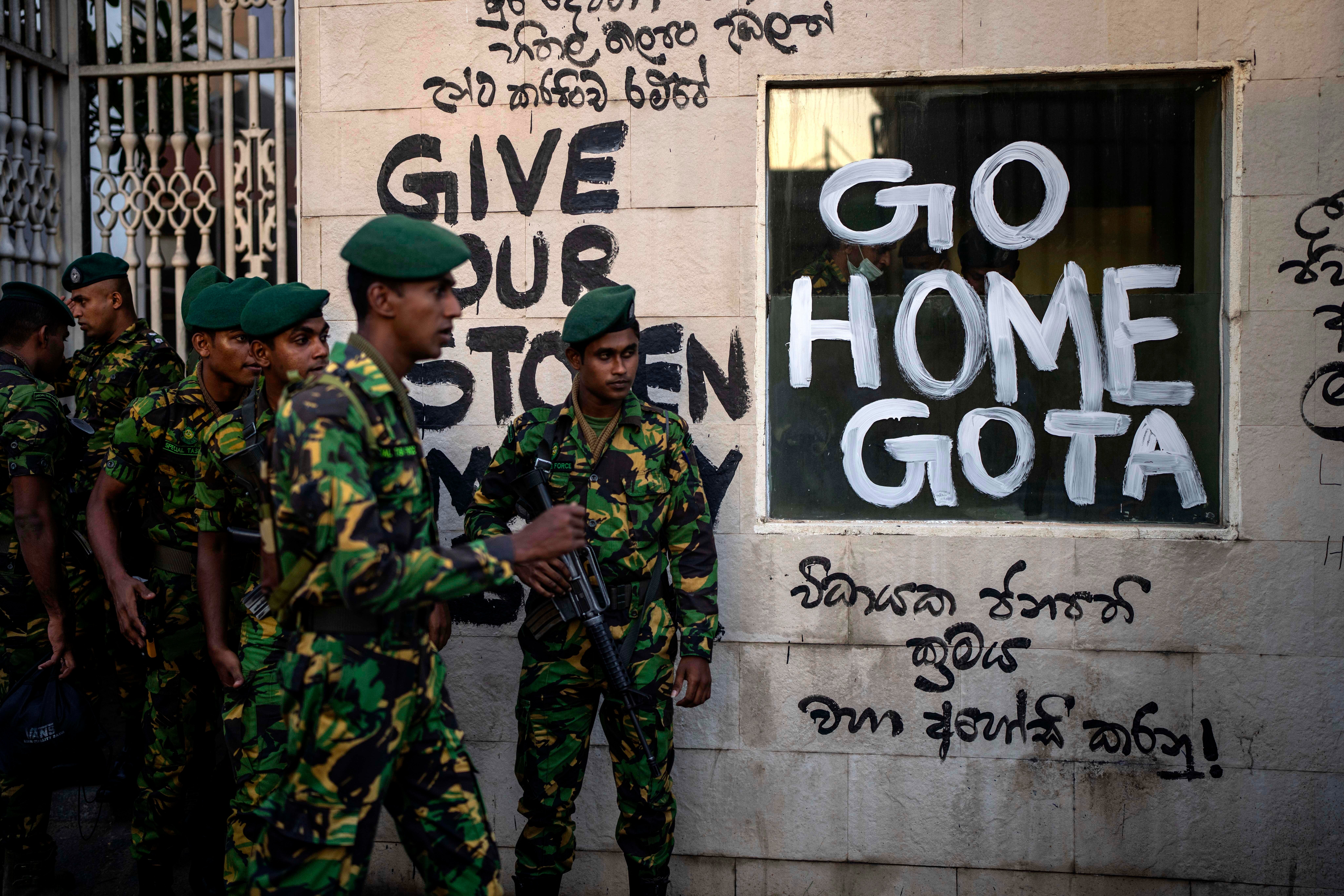A brief history of the rise, fall of Sri Lanka's president
Before he fled Sri Lanka on Wednesday, President Gotabaya Rajapaksa was the last of six members of the country’s most influential family still clinging to power

Your support helps us to tell the story
From reproductive rights to climate change to Big Tech, The Independent is on the ground when the story is developing. Whether it's investigating the financials of Elon Musk's pro-Trump PAC or producing our latest documentary, 'The A Word', which shines a light on the American women fighting for reproductive rights, we know how important it is to parse out the facts from the messaging.
At such a critical moment in US history, we need reporters on the ground. Your donation allows us to keep sending journalists to speak to both sides of the story.
The Independent is trusted by Americans across the entire political spectrum. And unlike many other quality news outlets, we choose not to lock Americans out of our reporting and analysis with paywalls. We believe quality journalism should be available to everyone, paid for by those who can afford it.
Your support makes all the difference.Before he fled Sri Lanka on Wednesday amid a crushing economic crisis, President Gotabaya Rajapaksa was the last of six members of the country's most influential family still clinging to power.
Rajapaksa, his wife and two bodyguards flew to the city of Male, the capital of the Maldives, according to an immigration official who spoke on the condition of anonymity because of the sensitivity of the situation.
His departure comes four days after massive crowds broke into his official residence and occupied his seaside office, and he pledged to leave the country. Protesters also stormed the residence of Prime Minister Ranil Wickremesinghe, who has said he will leave once a new government is in place.
Here is a closer look at the rise and fall of Rajapaksa:
__
A FAMILY AFFAIR
For decades, the powerful land-owning Rajapaksa family had dominated local politics in their rural southern district before Mahinda Rajapaksa was elected president in 2005. Appealing to the nationalist sentiment of the island’s Buddhist-Sinhalese majority, he led Sri Lanka into a triumphant victory over ethnic Tamil rebels in 2009, ending a 26-year brutal civil war that had divided the country. His younger brother, Gotabaya, was a powerful official and military strategist in the Ministry of Defense.
Mahinda remained in office until 2015, when he lost to the opposition led by his former aide. But the family made a comeback in 2019, when Gotabaya won the presidential election on a promise to restore security in the wake of the Easter Sunday terrorist suicide bombings that killed 290 people.
He vowed to bring back the muscular nationalism that had made his family popular with the Buddhist majority, and to lead the country out of an economic slump with a message of stability and development.
Instead, he made a series of fatal mistakes that ushered in an unprecedented crisis.
TAX CUTS DRAIN GOVERNMENT FUNDS
As tourism plunged in the wake of the bombings and foreign loans on controversial development projects — including a port and an airport in the president’s home region — needed to be repaid, Rajapaksa didn't listen to economic advisers and pushed through the largest tax cuts in the country’s history. It was meant to spur spending, but critics warned it would slash the government’s finances. Pandemic lockdowns and an ill-advised ban on chemical fertilizers further hurt the fragile economy.
The country soon ran out of money and couldn’t repay its huge debts. Shortages of food, cooking gas, fuel and medicine stoked public anger at what many saw as mismanagement, corruption and nepotism.
THE END BEGINS
The family’s unravelling began in April, when growing protests forced three Rajapaksa relatives, including the finance minister, to quit their Cabinet posts and another to leave his ministerial job. In May, government supporters attacked protesters in a wave of violence that left nine dead. The anger of the protesters turned against Mahinda Rajapaksa, who was pressured to resign as prime minister and took refuge on a heavily fortified naval base.
But Gotabaya refused to go, triggering chants in the streets of “Gota Go Home!” Instead, he saw his savior in Wickremesinghe, a seasoned opposition politician who he brought in to steer the country out of the abyss. Ultimately, however, Wickremesinghe lacked the political heft and public support needed to get the job done.
___
Associated Press journalist Krishan Francis contributed to this story.